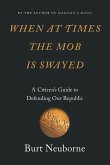No one remembers Richard M. Nixon as an environmental president, but a year into his presidency, he committed his administration to regulate and protect the environment. The public outrage over the Santa Barbara oil spill in early 1969, culminating in the first Earth Day in 1970, convinced Nixon that American environmentalism now enjoyed extraordinary political currency. No nature lover at heart, Nixon opportunistically tapped the burgeoning Environmental Movement and signed the Endangered Species Act in 1969 and the National Environmental Protection Act in 1970 to challenge political rivals such as Senators Edmund Muskie and Henry Jackson. As Nixon jockeyed for advantage on regulatory legislation, he signed laws designed to curb air, water, and pesticide pollution, regulate ocean dumping, protect coastal zones and marine mammals, and combat other problems. His administration compiled an unprecedented environmental record, but anti-Vietnam War protests, outraged industrialists, a sluggish economy, the growing energy crisis, and the Watergate upheaval drove Nixon to turn his back on the very programs he signed into law. Only late in life did he re-embrace the substantial environmental legacy of his tumultuous presidency. ABOUT THE CONTRIBUTORS J. Brooks Flippen is an associate professor of history at Southeastern Oklahoma State University. ACCLAIM ". . .interesting, and readable book that draws extensively upon archival material from the administration and congressional leaders. . . .it offers interesting insight into the development of organized anti-environmentalism." -- Journal of Southern History "Flippen's facts and conclusions are well-supported . . . This is an important book that sheds light for the first time on an area of policies for which the author argues convincingly that Nixon has received too little credit. It is also a good read." -- Indiana Magazine of History "Flippen's work is to be commended for redirecting attention toward Nixon's domestic policy . . . [his] text is one of the most thorough analyses available to date of the environmental movement's often strained relationship with modern-day conservatism." -- History "The greatest strength of the book is its careful depiction of the politics surrounding Nixon's reluctant response to public demands for national efforts to protect the land, air, and water against environmental abuses. . . . Flippen skillfully crafts the story . . . of the dark closing days of the Nixon presidency . . . The book is fascinating reading . . .this is enjoyable reading and well-worth the time. . . [a] highly readable book." -- Journal of Politics "[An] excellent and carefully-crafted study of environmental politics during the Nixon administration . . . " -- Choice
Hinweis: Dieser Artikel kann nur an eine deutsche Lieferadresse ausgeliefert werden.
Hinweis: Dieser Artikel kann nur an eine deutsche Lieferadresse ausgeliefert werden.








